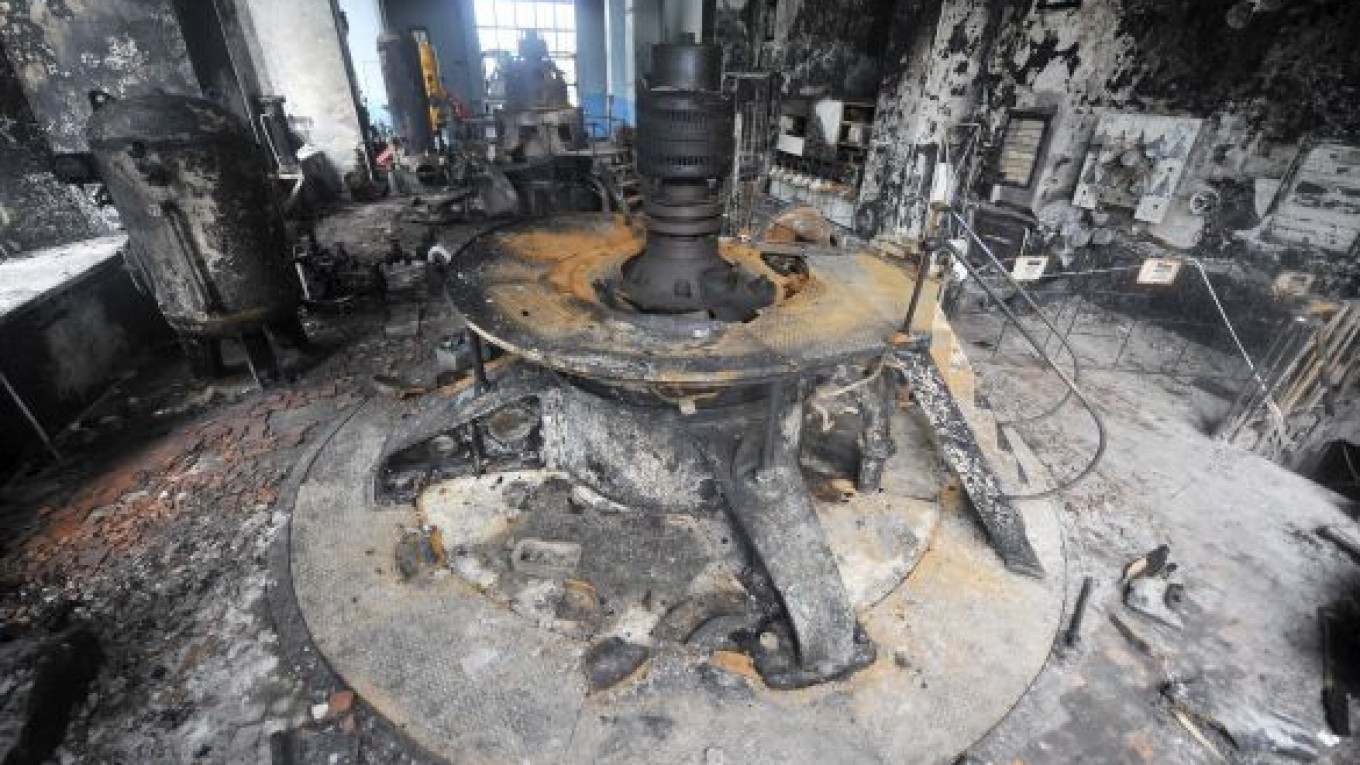President Dmitry Medvedev threatened a wave of dismissals Thursday if attackers managed to carry out a repeat attack on strategic infrastructure in the North Caucasus after the bombing of a power station killed two and caused $50 million in damage.
“There needs to be a fundamentally different system, designed and unified for all economic structures in the Caucasus,” Medvedev told Deputy Prime Minister Igor Sechin in a televised meeting outside Moscow after Sechin visited the station.
Officials “must do all they can to make sure that such things do not happen again,” Medvedev said. “If they do, none of the law enforcement, security and energy company chiefs will keep their jobs. They will all be fired.”
No one has claimed responsibility for Wednesday’s attack by six gunmen on the station in the town of Baksan, and no suspects have been identified, said Alexander Bastrykin, head of the Investigative Committee.
But unidentified law enforcement officials told Russian news agencies that they suspected the attack was organized by local rebel leader Kazbek Tashuyev, also known as Abdul-Dzhabbar, or Asker Dzhappuyev, also known as Emir Abdullakh, perhaps separately or working together.
Tashuyev, 31, a Baksan native, leads the Islamist militant group Baksan Jamaat. An official told Interfax that no evidence against Tashuyev had been found so far, but that he was under investigation because his group is active in the region.
Dzhappuyev is the self-proclaimed leader of Islamist militants in Kabardino-Balkaria.
Dzhappuyev and Tashuyev earlier announced that they would join forces in their “jihad” against the police, Kommersant reported Thursday.
Vesti state television cited witnesses as saying the attackers spoke to one another in Georgian, possibly in an attempt to conceal their identities. Georgia is not known for Islamist militants, but its government is on poor terms with Moscow.
Sechin, visiting the power station, praised the “heroic actions” of employees who quickly cut off the water after four bomb explosions rocked the station, preventing flooding in the room containing the station’s three generators. Two generators were destroyed in the remote-controlled blasts, whose force was the equivalent of 10 kilograms of TNT.
The attackers broke into the station early Wednesday, gunning down two police guards and assaulting two employees working in the station before planting five bombs. The fifth bomb did not detonate and was later defused.
Interior Minister Rashid Nurgaliyev told Medvedev that the guards had been sleeping — one on duty in the station and the other in a car — and their commander had been fired.
Regional investigators have opened a criminal case into numerous charges, including sabotage, but not terrorism. Bastrykin said the station’s weak security was partially to blame for the attack.
Repairs at the station, owned by state-controlled RusHydro, will cost at least 1.5 billion rubles ($49 million) and possibly more, Sechin said.
The station’s operations will be partly restored within three or four months, but after that, the station, built in 1936, will be completely rebuilt, said RusHydro chairman Yevgeny Dod, Kommersant reported. The reconstruction was slated to start in 2014 but will be moved forward because of the attack, Dod said, adding that the work would take two to 2 1/2 years.
Sechin said the station’s output might be increased from the current 25 megawatts to 30 megawatts.
Families of the two guards killed in the attack will receive compensation of 1.3 million rubles ($42,600) each, with 1 million rubles coming from RusHydro and the rest from the regional government, Sechin said.
The two employees who were assaulted will get 500,000 rubles from RusHydro.
A Message from The Moscow Times:
Dear readers,
We are facing unprecedented challenges. Russia's Prosecutor General's Office has designated The Moscow Times as an "undesirable" organization, criminalizing our work and putting our staff at risk of prosecution. This follows our earlier unjust labeling as a "foreign agent."
These actions are direct attempts to silence independent journalism in Russia. The authorities claim our work "discredits the decisions of the Russian leadership." We see things differently: we strive to provide accurate, unbiased reporting on Russia.
We, the journalists of The Moscow Times, refuse to be silenced. But to continue our work, we need your help.
Your support, no matter how small, makes a world of difference. If you can, please support us monthly starting from just $2. It's quick to set up, and every contribution makes a significant impact.
By supporting The Moscow Times, you're defending open, independent journalism in the face of repression. Thank you for standing with us.
Remind me later.






